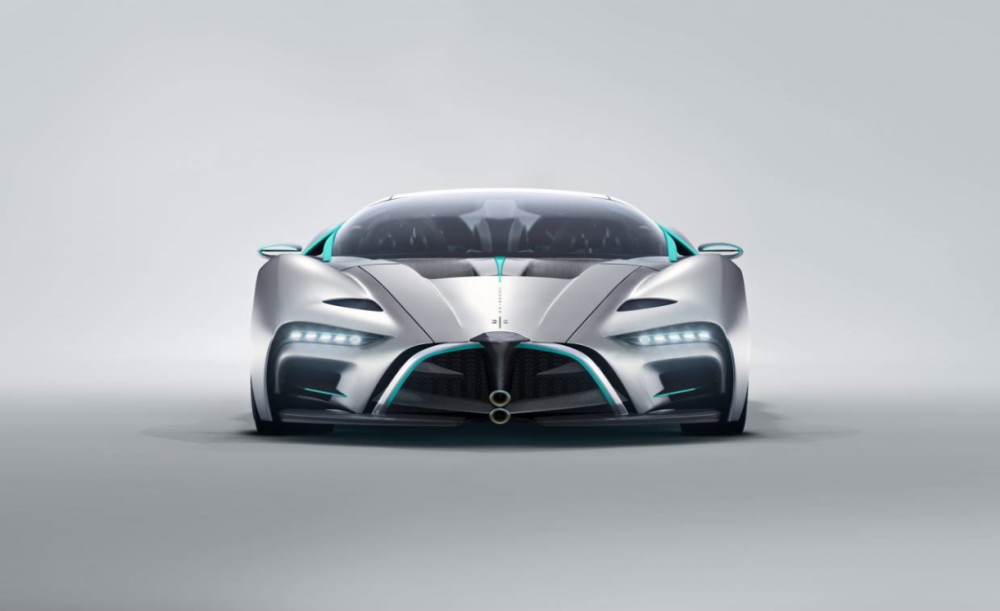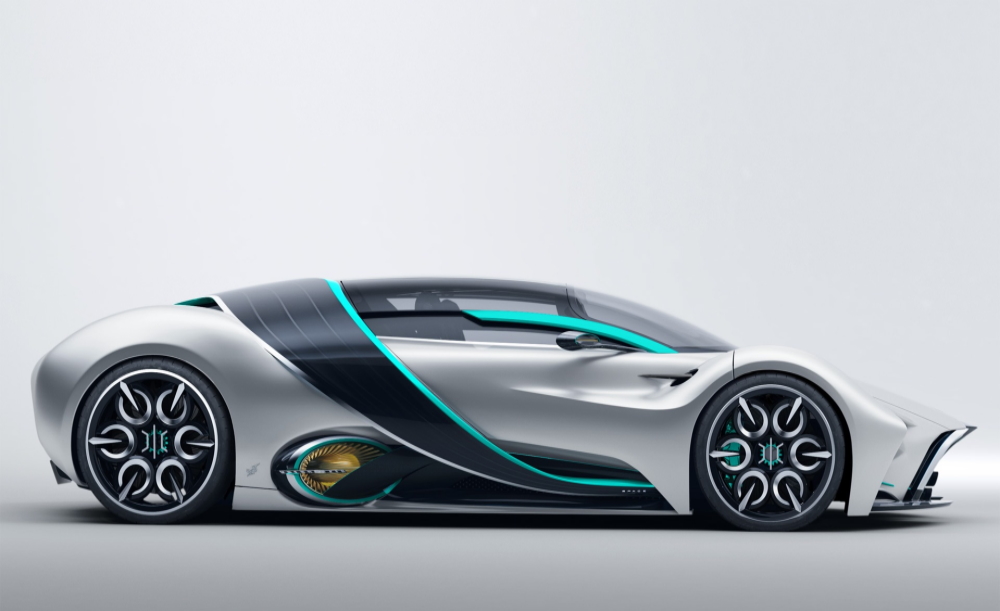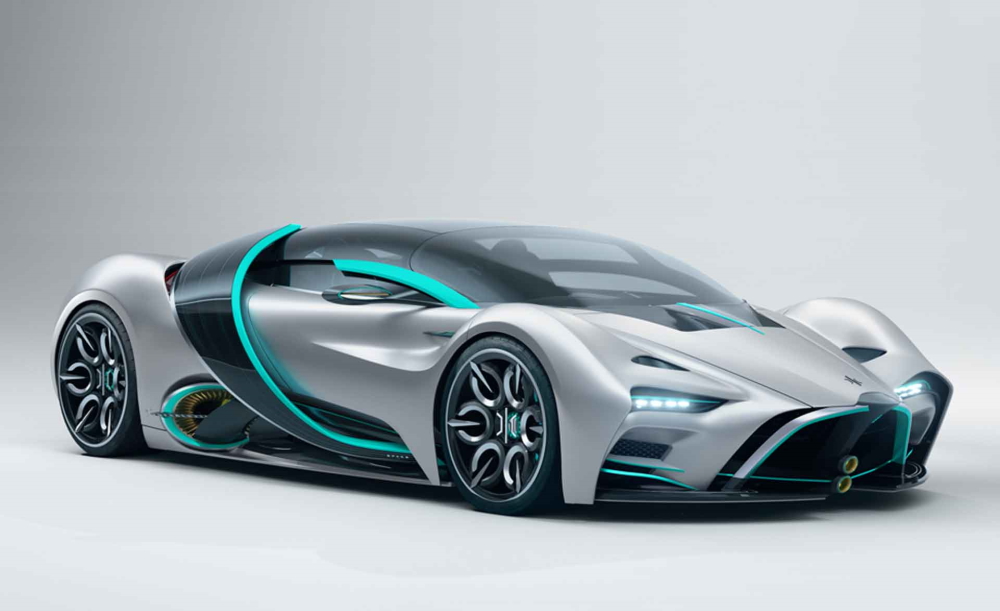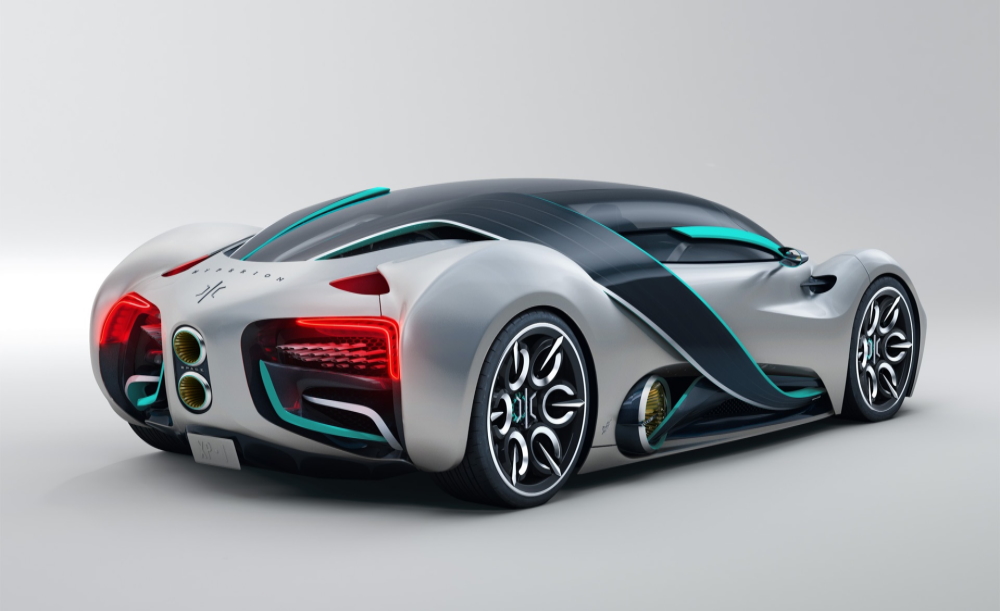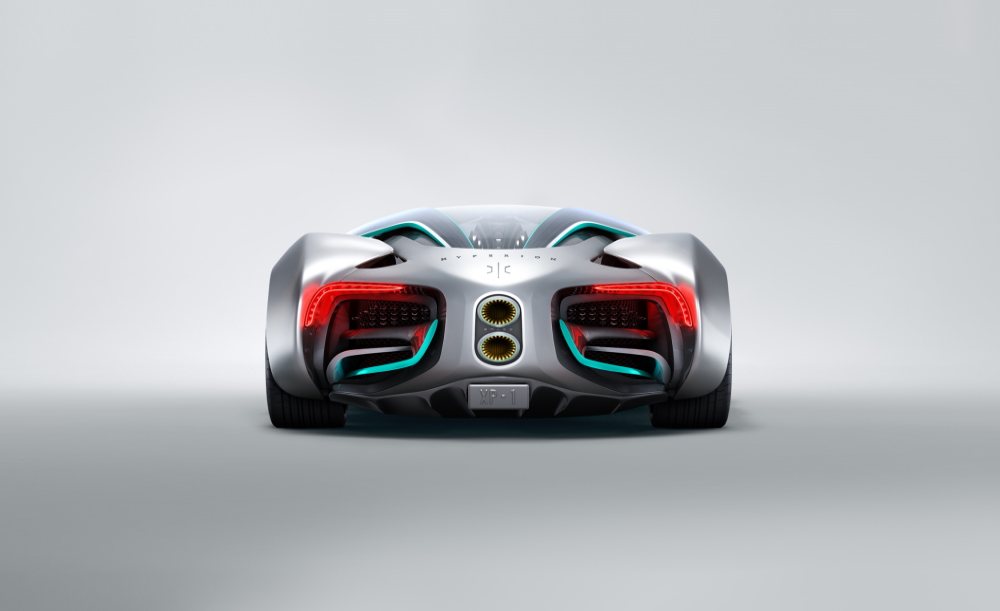When completed, this hydrogen fuel cell hypercar could top out at over 221 mph.
Like Seinfeld’s Frank Costanza on Festivus, Hyperion chief executive officer Angelo Kafantaris aired his grievances to MotorTrend about the public’s view on hydrogen-powered vehicles. “[People] think electric is different from hydrogen,” Kafantaris told us in a recent phone interview. “We really need to explain to them that electric is the future and hydrogen is the way to get there, not heavy batteries. ”
Sometimes, though, it’s better to show than tell, which is what Hyperion hopes to achieve with its forthcoming XP-1 hydrogen-electric vehicle. Unveiled in prototype form, the low-slung XP-1 is Hyperion’s way of showing that hydrogen-electric powertrains offer “all the same benefits of [a] battery-electric vehicle [with] none of the drawbacks. ”
Speed And Range
If the technical specifications of the XP-1 prototype hold true to the forthcoming production model, then Hyperion’s hypercar certainly achieves its goal of showing off hydrogen’s performance capabilities. According to Hyperion, the all-wheel-drive XP-1 prototype manages a Bugatti Chiron-rivaling run to 60 mph of under 2.2 seconds. Hold the accelerator pedal down long enough, and the XP-1’s proton exchange membrane fuel cell (a type also used in the Toyota Mirai) and its three-speed gearbox allow it to reach a claimed top speed of more than 221 mph. That’s plenty fast, even if it falls short of the 16-cylinder Bugatti’s 261-mph top speed (or the more than 300-mph figure of the Chiron Super Sport 300+).
More impressive, though, is the XP-1’s reported driving range of 1,016 miles. Credit for that figure goes to the car’s claimed curb weight of under 2,275 pounds (a Mazda MX-5 Miata, meanwhile, tips the scales at 2,341 pounds), aerodynamic design, and a generous capacity of hydrogen stored onboard. Hyperion remains mum on the number of kilograms of hydrogen the XP-1 holds, but we’d wager it’s somewhere in the double digits. For reference, the 3,990-pound Hyundai Nexo manages a driving range of 380 miles from its 6.3 kg hydrogen tank.
Regardless, filling up the XP-1’s hydrogen tank ought to be a quicker affair than charging a battery-electric vehicle. Finding a hydrogen station, however, remains a difficult (if not impossible) task in most places. Hyperion hopes to ease that search (as well as lower the cost of hydrogen) by working with partners to build a network of hydrogen stations throughout the country. How soon this goal is achieved remains to be seen.
Hyperion Fleek
Complementing the XP-1’s straight-line performance and driving range is its striking design. Beautiful, the XP-1 is not, and the car’s exterior look is both busy and incohesive.
That said, Hyperion’s still managed to create a car that turns heads. Swollen fenders emphasize the prototype’s big wheels and short overhangs, while turbine-like details add drama to the car’s center-mounted exhaust tips and body side trim. Additional visual drama comes courtesy of the XP-1’s rear buttresses that bleed from the fighter-jet-like glass canopy into the body’s sides. Scissor-style doors allow entrance into the cabin, which features gesture controls for operating many of the car’s features.
With only 300 XP-1s earmarked for production, this hydrogen-powered hypercar will surely be a rare sight. And likely a pricey one, too. The company isn’t ready to talk numbers, yet. (Nor where it plans to build the car, although Hyperion claims it will assemble the XP-1 in the United States.) Nevertheless, we expect the XP-1 to sport a high six-figure sticker price.
That’s assuming the XP-1 sees the light of day, though. As promising as Hyperion’s hypercar is, it’s still a prototype. Producing a salable vehicle—yet alone a hydrogen-powered car capable of more than 221 mph—requires Festivus-like feats of strength. However, if all goes according to plan, then deliveries of the XP-1 ought to begin in early 2022.
Article via motortrend.com
